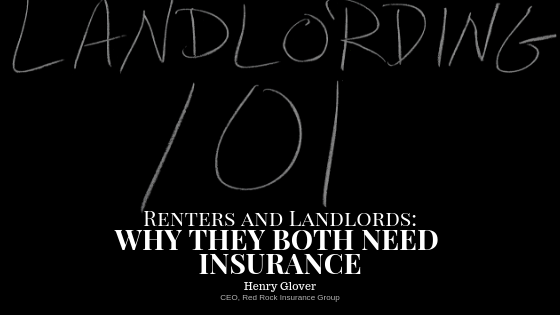As with most residential properties, a rental property is comprised of two basic components: the property itself and the items inside. The property itself is the landlord’s responsibility, but each individual renter is responsible for their items. This is why it’s essential for both the landlord and the tenants to have their own insurance policies.
Landlord Insurance
Landlord insurance typically covers three types of losses:
- Property damage, such as damage to a property’s structure from fire, wind, hail or snow. It will also cover personal property, such as appliances and furniture left for tenant use.
- Liability coverage for legal protection if a tenant is injured on the property
- Loss of rental income if the property is uninhabitable due to fire, etc.
The insurance can also be customized to protect landlords against other unexpected situations.
Landlord insurance is similar to traditional homeowners insurance, but it is specifically tailored to the needs of a property that will be leased. If you have long-term renters, landlord insurance is a necessity. If you only have short-term renters who live in your primary residence for short periods of time, that may be protected by your existing homeowners insurance policy. However, the insurer must be made aware of the situation to confirm. Someone who frequently rents out their primary residence (through Airbnb, for example) may be considered a business owner by their insurer, meaning they’ll have to purchase a commercial insurance policy instead of traditional landlord insurance.
Renters Insurance
Renters should never assume that a landlord’s insurance is sufficient. For example, landlord insurance won’t cover any of the tenant’s property that is damaged in a fire, flood, etc. A tenant should especially be concerned about renters insurance if they plan to entertain guests. The tenant is legally responsible for any guests who are injured on the property.
Typical renters insurance will cover personal liability, theft, and personal property damage caused by natural disasters. Similar to landlord insurance, renters insurance can also be customized. However, it will likely not protect the renter from accidental loss of their own items, damage from their pet, and a roommate’s valuables. Each tenant needs their own insurance policy to protect themselves.
Some landlords may require that their tenants obtain renters insurance. Even when that isn’t the case, renters should do their due diligence to protect themselves and their belongings.
Whether you’re the landlord or the tenant, the right insurance can offer protection when something goes wrong. Even a clean property with up-to-date repairs isn’t immune to things like injury, natural disasters, theft and subsequent claims.
